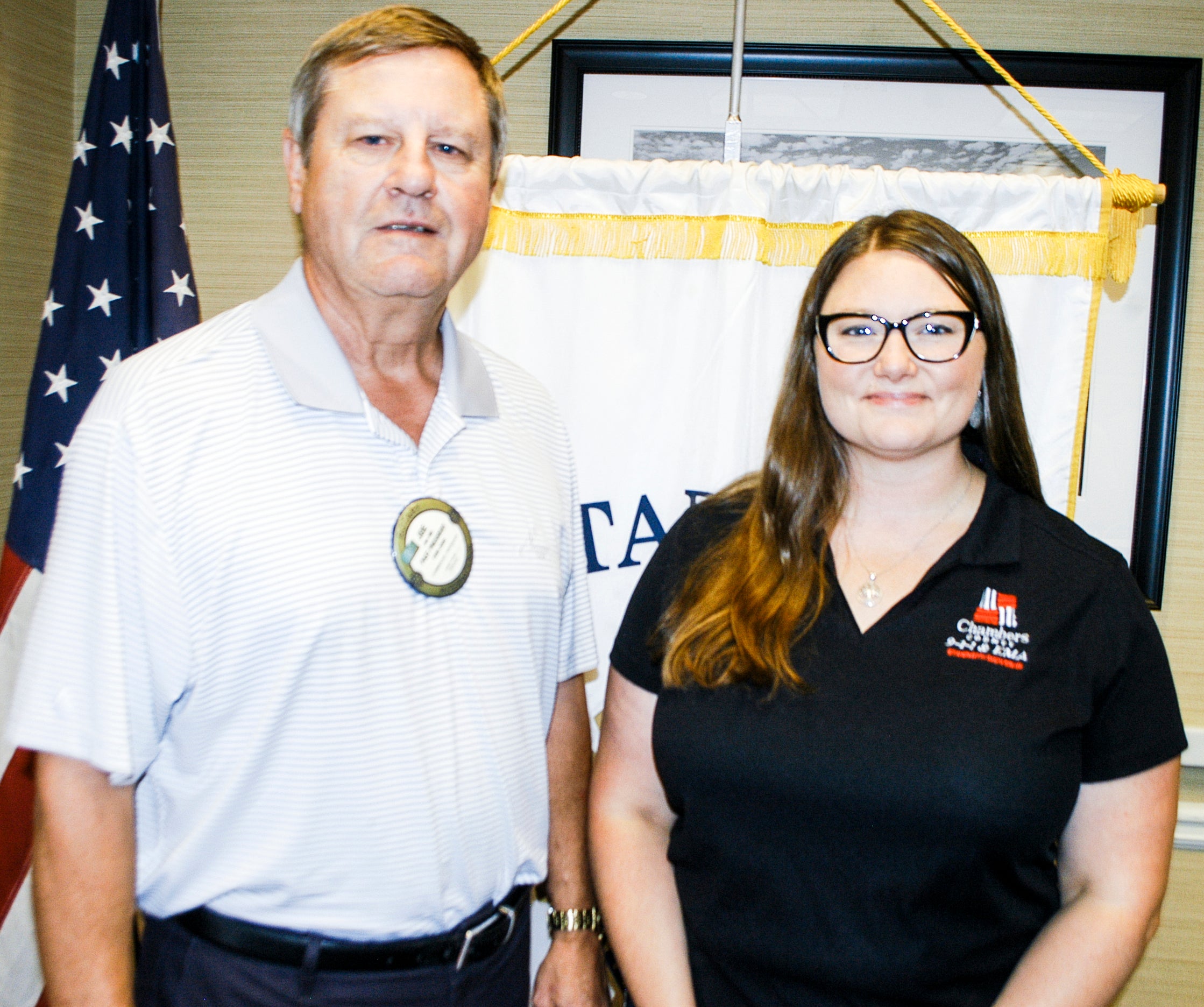Chambers County EMA Director talks about future of 911 center
Published 5:19 pm Friday, July 26, 2019
LANETT — Dispatchers who work for the Chambers County Emergency Management Agency get in the neighborhood of 100,000 calls every year, many of them life-or-death situations.
More than 70,000 of the calls that came in in 2018 required service being dispatched to a scene. Then again, there are the crank calls. They have to be answered, too.
“We had someone call us from Burger King,” EMA Director Jessica Yeager told members of the West Point Rotary Club at Thursday’s meeting. “They were upset with their order, and they wanted us just to do something about it.”
Yeager said once the call ended, the person on the other end of the line called again asking if the police were going to do anything about it.
In her 13 years with the Chambers County EMA, Yeager has just about seen it all. She started out as a dispatcher in 2006 and has worked up through the ranks to become the operations manager. She succeeded long-time director Donnie Smith earlier this year. Smith retired after a career in emergency management that spanned three decades.
“I have a passion for Chambers County 9-1-1 and our emergency responders,” she said. “No matter what, we treat everyone in a professional manner, even that person who called us from Burger King. In some cases, dispatchers are talking to people in extremely traumatic situations.”
They must be calm and reassuring, letting them know that help is on the way.
Yeager has gotten much training in her 13 years with Chambers County 9-1-1.
“My husband, who is a police officer in Opelika, jokes that I am a career college student.”
The Yeagers are well-schooled in dealing with emergency situations. Her husband is an FBI-trained crisis negotiator.
Yeager is proud that Alabama is at the forefront nationally in emergency management and Chambers County is one of the tops in Alabama. The state will soon have its own call routing for emergency calls. At present, there’s only two routing systems in the Southeast. Alabama will be the first state to have its own system.
“In the future, we will have video capability with our 9-1-1 calls. At present, we do have texting,” Yeager said. “This is important when dealing with those who are hearing impaired. Video will be a big step forward. It will let us tell first responders what to expect when they get to an emergency. I am very excited about this.”
Yeager said that 9-1-1 is the ultimate in customer service.
“We have to give our people the best,” she said. “We are down to just a two-second delay on wireless communications. The next generation of 9-1-1 will be much improved. We are getting better in locating where all phone calls are coming in from.”
This has been a problem due to so many calls coming in from cell phones. Yeager has a simple way of looking at this.
“If the pizza delivery guys can locate better than we can, something needs to be done about it,” she said.
Overall, said Yeager, a countywide system is very cost effective.
“It was much more complicated when Valley had their own system,” she said. “It saves so much time when everyone is in the same building. All dispatchers have the same screen at their work station. They know immediately where to dispatch.”
Yeager likes the public relations side of the job.
“We love making public appearances,” she said. “We can show people our tower truck and our communications truck and talk to them how they work. If our main tower ever goes down, we can have the mobile tower up in 30 minutes and be back online. I’m big on community outreach. I love talking to kids about careers in 9-1-1 and emergency management.”
There are 67 911 districts in Alabama, one for each county. There are also 21 municipal districts, bringing the total number of agencies to 88. Chambers is one of only four districts in the state that have both EMA and 911 under one roof, under one director.
Yeager is encouraging all Chambers County residents to participate in the 2020 Census.
“We don’t want to leave anyone uncounted,” she said. “That could hurt us on grant funding, and we need all we can get.”
Many Alabamians directly benefit from federal programs whose funding allocations are determined in part by census data. For these people, completing a census form will be a way to have a say in ensuring that Alabama receives its fair share of funding for these programs.
The assistance programs tied to census data are critical to all Alabamians. If this funding is reallocated to other states due to a poor census count, then the funding for the missing services will have to be made up in some way at the state level. This affects everyone.
“The census is very important,” Yeager said. “I sat down with my grandparents not long ago and helped them fill it out.”





